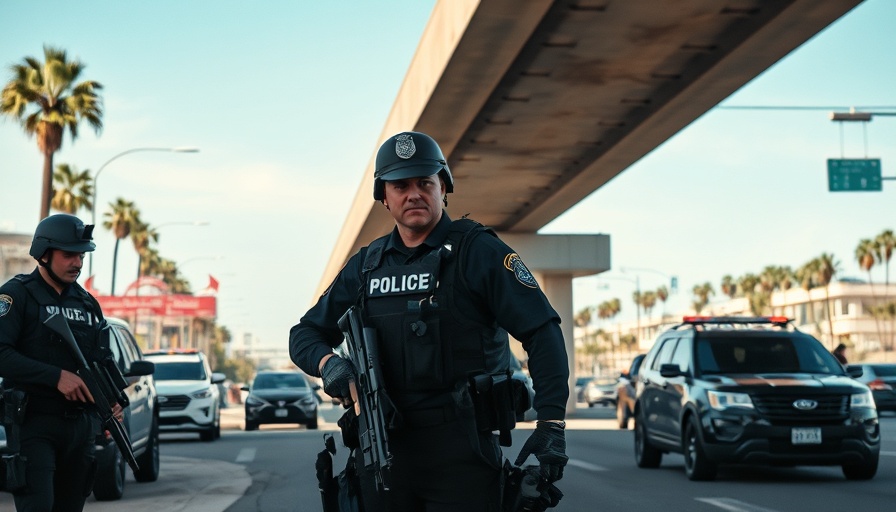
The Controversial Deployment of Troops in Los Angeles
In a move that has sparked national debate and heightened political tensions, Vice President JD Vance recently visited Los Angeles to meet with the 4,700 troops deployed to the area. This military presence aims to address widespread protests against immigration raids, which have become a significant issue in the region. Vance's remarks accused California's Democratic leadership, particularly Governor Gavin Newsom, of encouraging illegal immigration rather than supporting local law enforcement efforts to maintain order.
The Political Landscape Surrounding Immigration
The deployment of National Guard troops by President Trump earlier this month came despite pushback from Newsom and other local leaders. This situation has stirred controversy regarding the use of military force on domestic soil and the implications it has for civil liberty. Vance emphasized that the court's decision to allow Trump to retain control over the National Guard illustrates a commitment to enforcing laws designed to protect citizens, contrasting sharply with the attitudes of some local leaders who he accuses of failing to support law enforcement.
Local Impact and Community Response
The protests leading to troop deployment are rooted in escalating tensions between immigration advocates and enforcement agencies. Many community members express frustration over what they perceive as increasing raids by Immigration and Customs Enforcement (ICE), targeting workplaces and families. Activists claim these raids foster fear within immigrant communities, leading to a breakdown in trust between these communities and law enforcement. This complex interplay not only highlights immigration issues but also emphasizes the need for compassionate conversation surrounding human rights.
Vance's Approach: Balancing Security and Support
While Vance’s visit to the troops signals a firm stance on immigration enforcement, his approach raises questions about how to strike a balance between national security and the rights of individuals. The prevailing argument among critics of the troop deployment is that a focus on enforcement instead of comprehensive immigration reform merely exacerbates societal issues without offering solutions. Amidst this climate, there's a crucial need for a dialogue that includes the voices of both law enforcement and the communities directly affected by immigration policies.
Looking Ahead: Potential Outcomes
As discussions surrounding immigration continue to swirl, it is critical to consider how the outcomes will impact local communities and the political landscape in the U.S. Is military presence truly the solution, or does it serve to alienate communities further? Only time will tell whether this strategy will quell protests or fuel them, highlighting the necessity for leaders to engage in meaningful debates rather than resorting to divisive rhetoric. Furthermore, conversations about reform will need to involve policymakers willing to prioritize human rights alongside national security concerns.
Conclusion: The Call for Change
The deployment of military troops in Los Angeles over immigration enforcement invites robust discussions about the future of immigration policy and how best to ensure the safety of all residents, regardless of their immigration status. At this juncture, it's imperative for all stakeholders—government officials, community leaders, and citizens alike—to engage thoughtfully in addressing these issues and advocating for strategies that reflect both compassion and accountability.
 Add Row
Add Row  Add
Add 



Write A Comment